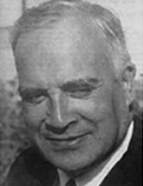

Despite these forays, TSS is not a follower of the "Annales school". Endowed with a sharp critical, analytical, and perceptive mind, he was particularly drawn to political history, always emphasising events. He cultivated a strong devotion to the document and its meticulous analysis (academic role as a professor of palaeography and diplomatics, along with his authorship of a palaeographic document album that went through three editions (1942, 1957, 1961), undoubtedly reinforced this scholarly focus, and so did his efforts to pioneer the collection of documentary sources of Portuguese history from foreign archives — through microfilms and photographs for the Archives of his Faculty — further highlighted his commitment to this erudite approach). In this sense, it is also worth mentioning the critical edition, together with Pierre David, of the Liber Anniversariorum Ecclesiae Cathedralis Colimbriensis ( Book of the Kalends ), in 2 volumes, in 1947-1948. The publication in the second volume of RPH in 1943, of "a false pontifical document from Coimbra" shows his taste for the rigorous transcription of documents and for critical studies in the disentanglement of false, interpolated or true writings. On the other hand, he left us short biographical studies that are true masterpieces of precision and rigour. He liked comparative history (which he tried to pursue), but his lack of sensitivity to structural analysis and social movements was not echoed in the diligent work he did to promote the opening up of studies and courses in economic and social history at his Faculty by foreign professors invited by him, as mentioned above, and whose topics he himself developed in notes to his edition of the aforementioned work by H. da Gama Barros (1945-1954), in some articles in the RPH (1955, 1965) and in entries in the DHP (1971-1973). Little inclined to engage in synthesis (despite repeatedly acknowledging that without it, there is no real history), preferring analysis, narrative, and description, TSS, drawn to historicism but distancing himself from historical positivism, remained attentive to the new historiographical currents emerging from France. He attempted a certain eclecticism but was always more strongly marked by what, in the words of a recent scholar (1995), has been characterised as a defining feature of the historical school of Coimbra in the 20th century, persisting until the early 1970s, as "neo-methodical historicism".
This work is financed by national funds through FCT - Foundation for Science and Technology, I.P, in the scope of the projects UIDB/04311/2020 and UIDP/04311/2020.
